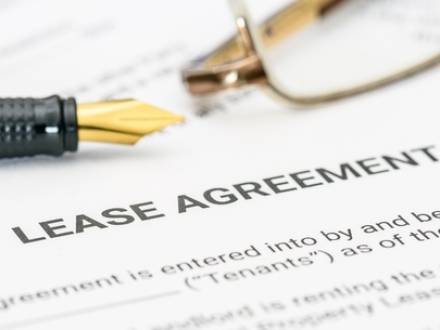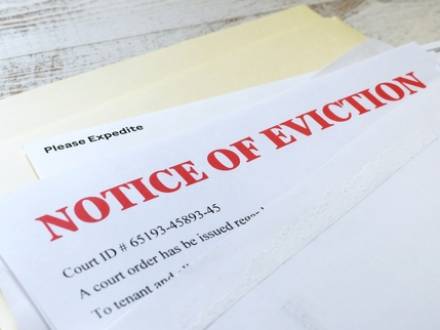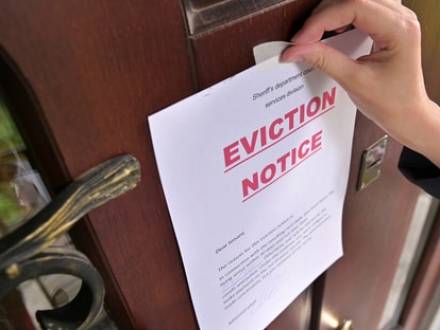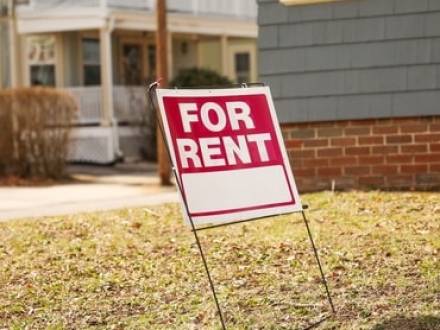Recent Blog Posts
What Counts as a "Material Breach" in a Residential Lease?
 In the state of Illinois, landlords are prohibited from evicting a tenant for relatively simple lease violations. To pursue eviction, the tenant must have committed a material breach of the lease. A material breach means the violation was serious and it undermined the core tenets of the rental agreement. But what qualifies as a material breach?
In the state of Illinois, landlords are prohibited from evicting a tenant for relatively simple lease violations. To pursue eviction, the tenant must have committed a material breach of the lease. A material breach means the violation was serious and it undermined the core tenets of the rental agreement. But what qualifies as a material breach?
Landlords who have a good understanding of the distinction between a material breach and a simple lease violation can better protect their rights, avoid court delays, and ensure any eviction decision is legally sound. Landlords can stay compliant with the law while remaining effective by discussing any potential evictions with a Naperville, IL landlord eviction attorney.
What Is a Material Breach Under Illinois Law?
A material breach occurs when a tenant’s failure to fulfill his or her contractual obligations is so significant that it defeats the entire purpose of the contract, depriving the other party of the substantial benefit he or she expected. A breach this serious allows the landlord to terminate the contract and, in some cases, pursue damages.
Will You Be Forced to Install a BAIID for a First-Time DUI?
 Being charged with DUI in Illinois can be overwhelming. In addition to potential criminal penalties, like jail time and steep fines, there are other penalties that can have devastating consequences on your day-to-day life. Having your driver’s license suspended is one of these.
Being charged with DUI in Illinois can be overwhelming. In addition to potential criminal penalties, like jail time and steep fines, there are other penalties that can have devastating consequences on your day-to-day life. Having your driver’s license suspended is one of these.
We are a mobile society, and you, like most of us, likely depend heavily on your ability to drive. We drive to work, to school, to take our children to and from school and extracurricular activities, and to run necessary errands. Being required to have a Breath Alcohol Ignition Interlock Device (BAIID) on your vehicle in order to drive can add significantly to the financial costs associated with a DUI conviction.
The best step you can take after being charged with DUI is to speak to an experienced Naperville, IL DUI lawyer who will work zealously to have your charges reduced or dropped or to achieve a not-guilty verdict at trial. Having a knowledgeable DUI attorney by your side can significantly alter the outcome of your charges.
How Severe Are Penalties for Intent to Distribute Cocaine in Illinois?
 State police in Illinois made a near-record cocaine bust during a McLean County traffic stop in April. The suspect was arrested on eastbound I-74 near LeRoy. The charges included controlled substance trafficking and possession and the manufacture/delivery of a controlled substance. The police seized 234 pounds of cocaine with a street value of more than $10 million.
State police in Illinois made a near-record cocaine bust during a McLean County traffic stop in April. The suspect was arrested on eastbound I-74 near LeRoy. The charges included controlled substance trafficking and possession and the manufacture/delivery of a controlled substance. The police seized 234 pounds of cocaine with a street value of more than $10 million.
Offenses related to the production and sale of cocaine are punished harshly in Illinois, but in some cases, law enforcement may push the limits of the Constitution when investigating and arresting those suspected of cocaine offenses. Technology continues to provide increasingly invasive means of surveillance, leaving our judicial system struggling to keep up.
How the Expansion of Crime-Free Housing Laws Affects Landlords
 Recently, a Senate committee advanced a measure that aims to limit the circumstances under which tenants can face eviction because of ordinances that fall under "crime-free housing." Across the state of Illinois, one hundred cities have crime-free housing laws that allow landlords to evict a family for a minor offense, even if the offense did not occur on the property.
Recently, a Senate committee advanced a measure that aims to limit the circumstances under which tenants can face eviction because of ordinances that fall under "crime-free housing." Across the state of Illinois, one hundred cities have crime-free housing laws that allow landlords to evict a family for a minor offense, even if the offense did not occur on the property.
Thanks to these ordinances, as many as one in four Illinois residents live in rental homes that require them to sign a lease with a caveat. The lease states that if anyone who lives in the rental is accused of a crime, regardless of how minor, and regardless of whether the crime is even prosecuted, the tenant and family members can be evicted.
What Happens in an Out-of-State Illinois DUI Arrest?
 Traveling to another state can be exciting and interesting as you see new things and perhaps meet new people. Getting arrested for DUI in another state can spoil your vacation or business trip and is just about as messy a situation as you might imagine. If you were arrested in Illinois and charged with DUI, you are likely wondering whether you will have to come back to the state for a trial, what the penalties will be, and whether it will show up on your record in your home state.
Traveling to another state can be exciting and interesting as you see new things and perhaps meet new people. Getting arrested for DUI in another state can spoil your vacation or business trip and is just about as messy a situation as you might imagine. If you were arrested in Illinois and charged with DUI, you are likely wondering whether you will have to come back to the state for a trial, what the penalties will be, and whether it will show up on your record in your home state.
Regardless of whether you are a resident of Illinois, the state takes DUI charges seriously, and the consequences can be significant. You are right to be worried. However, the best thing you can do right now is to speak to a highly experienced Naperville, IL DUI lawyer who can provide you with information about how this will affect your driving privileges in your home state and handle your DUI in Illinois.
Advice for Landlords Regarding Tenant Evictions in 2025
 The most common reason that landlords in DuPage and Cook Counties go to eviction court is because of non-paying tenants. When a tenant falls behind on his or her rent and has no way of catching up, the balance of back rent can become significant. Unfortunately, the longer a landlord waits, the harder it may become to legally evict tenants. The average landlord waits until a tenant is at least three months behind and owes approximately $5,000 in back rent.
The most common reason that landlords in DuPage and Cook Counties go to eviction court is because of non-paying tenants. When a tenant falls behind on his or her rent and has no way of catching up, the balance of back rent can become significant. Unfortunately, the longer a landlord waits, the harder it may become to legally evict tenants. The average landlord waits until a tenant is at least three months behind and owes approximately $5,000 in back rent.
Since the timeline for a court hearing can be six months or more, a landlord can conceivably end up with $10,000 to $15,000 in lost income. Landlords should have an absolute "trigger point" at which time appropriate notice is filed on the tenants. Although failure to pay rent is the most common reason for evictions, there are other issues that can trigger a quicker eviction.
How Serious Are Charges of Reckless Driving in Illinois?
 In 2022, it was determined that at least 5 percent of all traffic accidents were directly caused by reckless driving. You may be under the impression that reckless driving charges are not all that serious. After all, it is simply a traffic offense, right? In fact, reckless driving is much more than a traffic violation; it is a criminal offense that can be charged as a misdemeanor or felony, depending on the circumstances. If you are facing charges of reckless driving, it is important that you speak to a knowledgeable Naperville, IL reckless driving lawyer.
In 2022, it was determined that at least 5 percent of all traffic accidents were directly caused by reckless driving. You may be under the impression that reckless driving charges are not all that serious. After all, it is simply a traffic offense, right? In fact, reckless driving is much more than a traffic violation; it is a criminal offense that can be charged as a misdemeanor or felony, depending on the circumstances. If you are facing charges of reckless driving, it is important that you speak to a knowledgeable Naperville, IL reckless driving lawyer.
What Is Reckless Driving?
Reckless driving includes driving any vehicle with intentional disregard for the safety and security of other drivers, pedestrians, or property. Under the statute, reckless driving can also be charged when a person deliberately causes his or her vehicle to become airborne. Some of the driving behaviors that are considered "reckless" include:
Charged With Possession with Intent to Deliver Near a School?
 The state of Illinois has strict laws to curb drug-related activities. The penalties for these offenses are more severe when they occur near a school. The Illinois Controlled Substances Act addresses this issue as it pertains to protecting children in educational environments. Those who are convicted of possession with intent to deliver or distribute near a school will face enhanced penalties.
The state of Illinois has strict laws to curb drug-related activities. The penalties for these offenses are more severe when they occur near a school. The Illinois Controlled Substances Act addresses this issue as it pertains to protecting children in educational environments. Those who are convicted of possession with intent to deliver or distribute near a school will face enhanced penalties.
In simple terms, "intent to distribute" means a person intended to sell a controlled substance. Intent to distribute is usually differentiated from possession by the amount of illegal drugs a person is in possession of. If the amount is more than the person could consume on his or her own, intent to distribute could be charged. The presence of drug paraphernalia like baggies, scales, or ledgers can increase the chances of being charged with intent to distribute.
Enhanced penalties are likely if the person arrested is within 1,000 feet of a school. This includes every level of private and public schools as well as selling drugs close to school buses. If you are facing charges of intent to distribute drugs and the offense occurred near a school, you are facing serious penalties. A Naperville, IL, criminal defense attorney can build a comprehensive defense on your behalf while ensuring your rights are protected.
Are Tenant Modifications Allowed Under Illinois Rental Laws?
 Most people who rent a home or apartment do their best to make their living space reflect who they are by personalizing it through painting and/or other forms of interior decorating. But before a tenant decides to dive headlong into rental property modifications, it should be stressed that in Illinois, any modification to a rental property requires the consent of the landlord.
Most people who rent a home or apartment do their best to make their living space reflect who they are by personalizing it through painting and/or other forms of interior decorating. But before a tenant decides to dive headlong into rental property modifications, it should be stressed that in Illinois, any modification to a rental property requires the consent of the landlord.
This consent is not simply a suggestion; rather, it is an essential component of tenant rights in Illinois. An alteration can be as significant as installing new fixtures or as minor as painting or wallpapering the entry wall. Without documented approval for alterations, a tenant can face disputes and difficulties that might have been avoided.
Civil litigation in these matters requires a tailored approach by a skilled attorney who understands landlord and tenant rights. If you are a landlord in Illinois wondering what your options are after a tenant paints every wall in the house bright purple – without asking – it is time to speak to an experienced Naperville, IL civil litigation attorney.
Illinois Criminal Charges and Civil Asset Forfeiture
 Every year, Illinois law enforcement agencies take cash, vehicles, land, and other assets worth tens of millions of dollars from residents through civil asset forfeiture. Civil asset forfeiture allows the police to take property they believe was used in the commission of a crime. In the past, these items have sometimes been taken through civil asset forfeiture without bringing criminal charges – let alone convictions.
Every year, Illinois law enforcement agencies take cash, vehicles, land, and other assets worth tens of millions of dollars from residents through civil asset forfeiture. Civil asset forfeiture allows the police to take property they believe was used in the commission of a crime. In the past, these items have sometimes been taken through civil asset forfeiture without bringing criminal charges – let alone convictions.
Since 2005, the state of Illinois has put more than $319 million dollars in the state coffers that came from the asset forfeitures of private citizens. If you are charged with a criminal offense that includes asset seizure, you need an experienced Naperville, IL criminal defense attorney to aggressively defend your charges. The best way to avoid civil asset forfeiture is to be found not guilty of criminal charges against you or to have the charges dropped.





